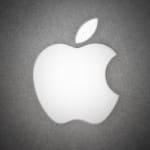Apple Reveals Patents For Fuel-Cells To Power Laptops
 Los Angeles – Imagine a laptop or cell phone that could run for weeks without recharging. This month, Apple filed for two patents relating to “a portable and cost-effective fuel cell system for a portable computing device.”
Los Angeles – Imagine a laptop or cell phone that could run for weeks without recharging. This month, Apple filed for two patents relating to “a portable and cost-effective fuel cell system for a portable computing device.”
The first patent application is entitled “Fuel Cell System to Power a Portable Computing Device.” According to the application, the patent encompasses a fuel cell system that uses a cell stack to produce electrical power. A controller runs the operation of the entire system, which can also include an interface to a portable computing device.
The second application, entitled “Fuel Cell System Coupled to a Portable Computing Device,” encompasses a fuel cell system that can provide power to and receive power from a rechargeable battery in a portable computing device.” The patent aims to eliminate the necessity for a large, heavy battery within the fuel cell system, significantly reducing the cost, size and weight of the fuel cell.
Fuel cells convert oxygen and hydrogen into electricity, creating water as a byproduct. They can hold more energy than a battery, are smaller, and do not utilize fossil fuels. The technology is currently used in certain types of vehicles such as cars, boats, submarines and NASA satellites. The only fuel cells developed to charge electronics require a separate fuel cartridge and are used to recharge a portable device. In contrast, the Apple patents describe fuel cells integrated into the electronics. The technology has the potential to be applied to many types of electronic devices.
Apple’s patent filings propose a fuel source of sodium borohydride powder mixed with water. The sodium borohydride will produce the hydrogen. The hydrogen can mix with oxygen through a membrane to produce electricity and water vapor. In developing these patents, Apple aimed to find solutions to reduce reliance on fossil fuels, offshore drilling, and foreign oil. If approved, these broad patents could allow the company to develop this specific technology without direct competition.
Apple owns approximately one-thousand patents. One study suggests it owns vastly fewer patents than other electronics companies. In contrast, Samsung has at least twelve-thousand patents. Nokia holds about eleven-thousand patents, followed by Alcatel-Lucent, which holds about ten-thousand patents. Thus, Apple’s recent high-profile patent infringement lawsuits against its competitors give it a misleading reputation for owning a large portfolio of intellectual property.













